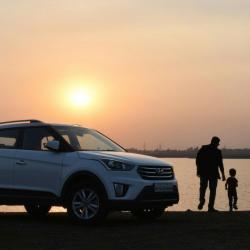The Top Factors to Consider When Buying Your First Car
Buying your first car is a significant milestone, marking a newfound sense of freedom and independence. However, it can also be a daunting experience, given the myriad of options and considerations involved in making the right choice. Whether you’re a recent graduate, a young professional, or simply ready to take the plunge into car ownership, here are the top factors to consider when buying your first car.
1. Budget: Setting Financial Boundaries
Before diving into the car market, it's crucial to establish a clear budget. Consider both the initial purchase price and the ongoing costs, such as insurance, fuel, maintenance, and registration. A common guideline is to allocate no more than 15% of your monthly income to car expenses. Remember, buying a car is not just about the upfront cost; it's about the long-term financial commitment.
2. New vs. Used: Weighing the Pros and Cons
One of the first decisions you'll face is whether to buy a new or used car. New cars come with the latest features, warranties, and that unbeatable new-car smell, but they also depreciate quickly. Used cars, on the other hand, are more affordable and can offer great value if you choose wisely. Consider certified pre-owned vehicles, which come with warranties and a thorough inspection by the manufacturer.
3. Reliability and Safety: Non-Negotiable Features
Reliability and safety should be at the top of your priority list. Research various models' reliability ratings and check for any recalls or common issues. Safety features like anti-lock brakes, airbags, stability control, and newer technologies like lane-keeping assist and blind-spot monitoring can provide peace of mind for new drivers.
4. Size and Type: Matching Lifestyle Needs
Think about how you'll primarily use the car. If you’re commuting in a city, a compact car might be more practical, while those needing to transport family or gear frequently might opt for an SUV or a larger sedan. Also, consider fuel efficiency and how it aligns with your daily driving habits.
5. Insurance Costs: Understanding the Impact
Insurance is a significant ongoing cost, and rates can vary drastically based on the car’s make, model, and safety features. Before making a purchase, get insurance quotes for the models you’re considering. Sometimes a slightly more expensive car might have better safety features that lower your insurance rates.
6. Financing Options: Exploring the Best Deals
If you're not paying cash, you'll need to explore financing options. Shop around for the best interest rates and terms, whether through banks, credit unions, or dealership offers. Keep in mind that a larger down payment can reduce your loan amount and monthly payments.
7. Resale Value: Thinking Ahead
While it might seem premature to think about selling a car you haven't even bought yet, resale value is an important consideration. Some makes and models depreciate more slowly, allowing you to recoup more of your investment if you decide to sell or trade in the car later.
8. Test Drive: Experiencing the Ride
Never underestimate the value of a test drive. It’s essential to feel comfortable and confident in the driver’s seat. Pay attention to visibility, seating comfort, control layout, and how the car handles on different road surfaces. This is also your chance to check for any unusual noises or issues.
9. Dealer Reputation: Buying from Trustworthy Sources
If you’re buying from a dealer, research their reputation. Look for reviews and ratings online, and check their standing with consumer protection agencies. A reputable dealer is more likely to provide a fair deal and excellent customer service.
10. Future Needs: Planning for Tomorrow
Finally, consider your future needs. If you plan to keep the car for several years, think about any lifestyle changes that might occur, such as starting a family or a job that requires more travel. Choose a car that will accommodate potential changes, ensuring it remains a good fit for as long as you own it.
Conclusion
Purchasing your first car is an exciting journey filled with important decisions. By considering these factors, you can navigate the process with confidence and find a car that aligns with your needs, budget, and lifestyle. Remember, the right car is out there waiting for you; it just requires a bit of research and thoughtful consideration to find it. Happy driving!






















